(Courtesy: Clare Burson – June/2007 )
By all accounts, my great grandmother, Malka/ Manya/ Mary Tarschiss, was petite, blonde, and always impeccably dressed. she was the quintessential bourgeoise German woman. she sent her daughter helga, not to the Jewish Carlebach school but to the hoere maedchen schule for quintessential bourgeoise German girls. Her home was beautifully appointed, but conventional for the time, filled with heavy mahogany furniture and thick dark curtains. (as a stark contrast to this, my grandmother recalls with delight a makeshift swing/ hammock hanging in the foyer – something even my decidedly not uptight parents did not dream up for me and my sister.)
Most importantly, malka spoke flawless German, unlike the rest of her relatives from Eastern Europe who spent nights pouring over their books, copying and re-copying German words from the dictionary. (they spoke Yiddish and a heavily accented German that belied their background.)
Despite all of this, malka was not German born. she too had come from Eastern Europe.
Malka was born in Berdichev, a shtetl (little town) in what is now the Ukraine. in nineteenth and early twentieth century Russian and Jewish literature and folklore, Berdichev epitomized the typical Jewish town. around the time my great grandmother was born, there were around 40,000 jews living there, making up 80% of the population. (it still blows my mind to think about a European town inhabited by so many jews.)
A flourishing shtetl during the first half of the nineteenth century, Berdichev’s fortunes (along with its Jewish population) decreased towards the end of the century. Perhaps this was why, after Malka’s father died of a weak heart when she was a baby, my great great grandmother left Berdichev with her three young daughters and moved to leipzig, Germany.
100+ years later, in June 2007, I returned . . .
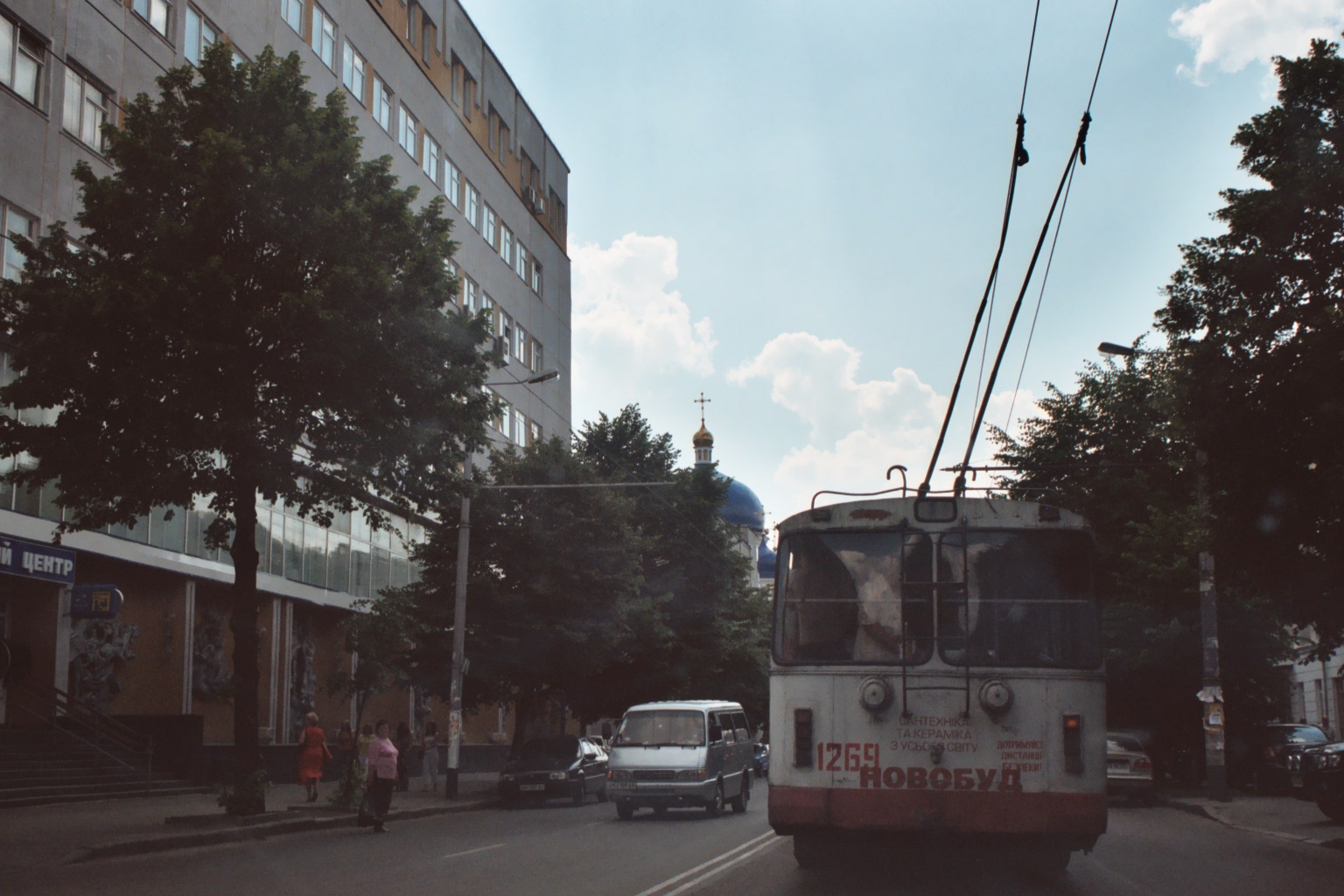 | 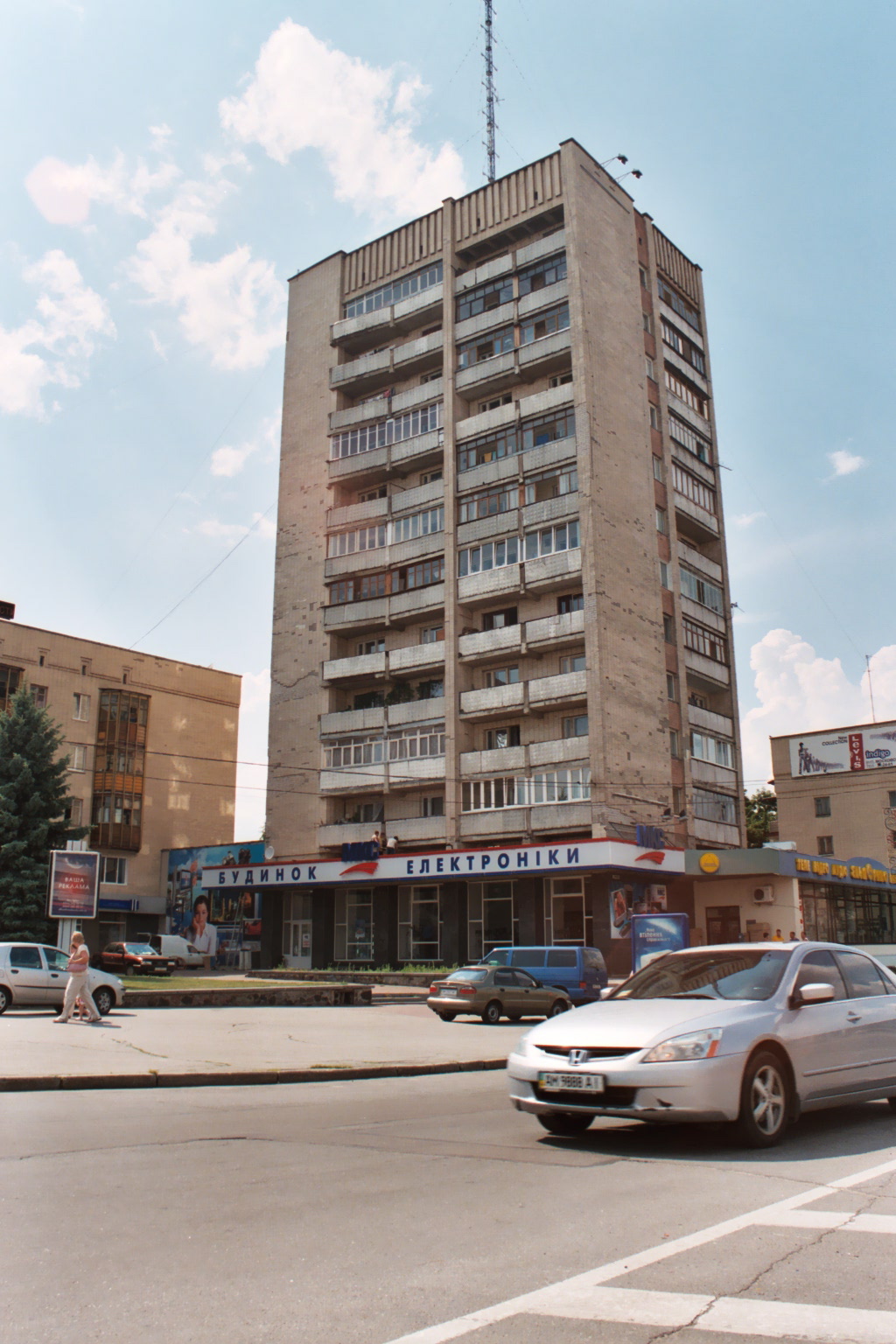 |
On the road from Kiev to Berdichev, my driver (Zeev – a youngish orthodox Jewish man who spoke Russian and Hebrew but no English or Yiddish) and i sat in relative silence. (his eyes were on the road. Mine were on the makeshift roadside stands selling brightly colored stuffed animals or jars of forest berries. I was particularly intrigued by the bunches of branches and arrows pointing into the forest where you could presumably receive a sauna and beating – to go!)
When we finally arrived in Berdichev, I was disappointed (but not surprised) to find few remnants of a Jewish shtetl. We were greeted by soviet-style architecture, paved streets, neon, street cars, gas stations. (of course. what was I thinking? this is the 21st century, not the 19th.)
Entering the synagogue, however, provided at least some semblance of continuity between my imagining of the past and the starkness of the recognizable present.
It was late afternoon. there were 3 old men waiting around for a minyan. (In the Jewish tradition, 10 men – no, women don’t count – are needed in order to have a community service in the synagogue.)
Before they began to pray, Zeev introduced me. the men excitedly began talking to me – in Yiddish. With my background in German and my limited knowledge in Yiddish were actually able to have a conversation.
I listened to their stories:
They were all born in Berdichev. one had hidden with his family in the cellar of the synagogue during the war. Another had survived a shot in the head by a nazi soldier. Another told me that he had a grandchild living in Lakewood, NJ. Did I know him?
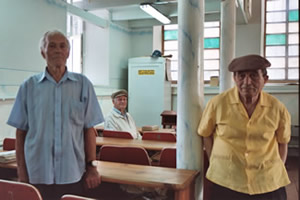 | 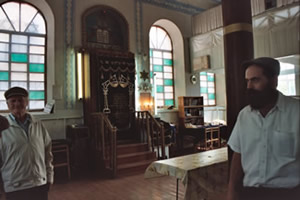 |
They listened to me:
I told them that I was the great granddaughter of Malka Tarschiss. Her parents had grown up in Berdichev. Did they know anyone with that last name?
I was comforted to hear them all murmur in recognition. they remembered a family named Tarschiss in Berdichev before the war. Malka must have left behind cousins, aunts, uncles . . .
As the men prayed, i waited dutifully upstairs in the women’s gallery. (6 more men must have shown up at some point . . . maybe a Rabbi too? All I remember is having to go upstairs.)
Before heading back to Kiev, Zeev took me to Berdichev’s Jewish cemetery: a sprawling expanse, overgrown with robust green weeds, littered with countless gravestones – inscribed with Hebrew letters – some standing, some toppled.
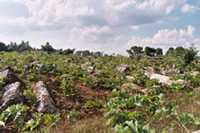 | 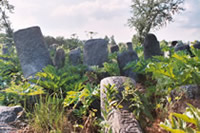 | 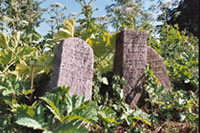 |
